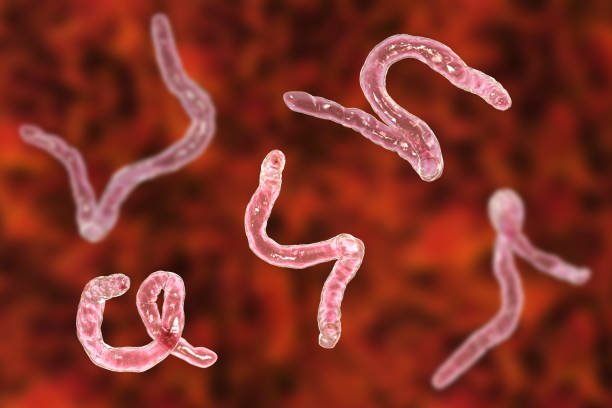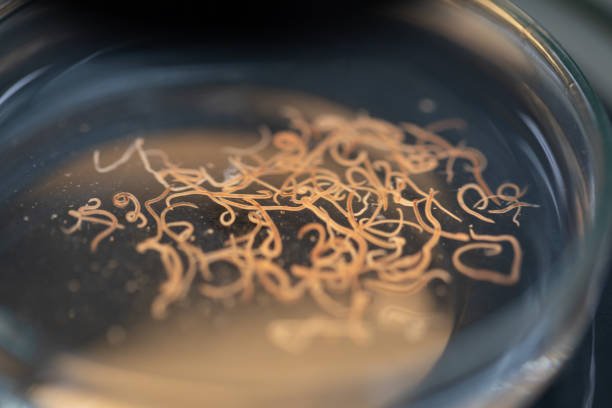Cestodes: the friendly enemy of human, animals and nightmares of careless eaters
Hey Friend
Today we are going to talk about some interesting aspect of entomology.
Let's dive into the medical entomology of cestode and its medical importance in the ecosystem.
Cestode is no longer a strange thing to us, especially those in medical fields, but even if you are not in the medical field, you can grab something tangible here today as we proceed.
First and foremost, cestode is the common name for tapeworms that work as parasites in humans and domestic animals.
They are hermaphroditic in nature in the sense that they possess both female and male reproductive organs. They are flat, long, and segmented worms that are capable of attaching to the walls of their host, thereby deriving nutrients from the host.
Cestodes belong to:
Kingdom: Animalia
Phylum: platyhelminthes
Class: cestoda
Order: pseudophyllidea and cyclophyllidea
**WHAT IS THE DIFFERENCE BETWEEN PSEUDOPHYLLIDEA AND CYCLOPHYLLIDEA**?
Pseudophyllidea is an order of cestodes that includes the beef tapeworm (Taenia saginata).
This particular tapeworm can be gotten from eating uncooked or undercooked beef meat. That's why it's advised to always cook meat well before consumption.
Cyclophyllidea, on the other hand, is an order of cestodes that includes the pork tapeworm (Taenia solium).
It's gotten from eating pork meat that's not well cooked.
Does Cestode have a digestive tract?
Cestodes have no digestive tract or body cavity. They actually derive nutrients through their skin, which is possible in the presence of microvilli. There is no specialized organ for gaseous exchange, and it has no circulatory system.
What are the general characteristics of cestodes?
They are dorsoventrally compressed, meaning that they have an oval shape with a flattened body.
They are bilaterally symmetrical, meaning that dividing the cestodes into equal parts will give you the same shape. We can possibly say that half of the dividend part is a mirror image of the other part.
As I mentioned before, they lack a digestive system. Basically, several of the adult cestodes are named after their intermediate host, except Taenia asiatica, which is an Asian tapeworm.
Cestodes cause diseases known as
Various body parts
Scolex: it measures 2-3 mm in length and 1 mm in breadth. It contains suckers and hooks, which help the cestode attach to the body of the host.
Neck: the neck holds the scolex firmly.
Strobula
the two classifications of cestodes
Systemic, e.g., pseudophyllidea and cyclophyllidea
according to habitat, e.g., adult worms, larval stage.
In the gastrointestinal tract, praziquantel is very effective against adult tapeworms such as Dipylidium caninum (a dog tapeworm that can infect humans), Diphyllobothrium latum (a fish tapeworm), Taenia saginata (a beef tapeworm), and T. solium (a swine tapeworm). Usually, these illnesses only show very mild symptoms, if any at all. While niclosamide, albendazole, and nitazoxanide are efficacious therapies for adult tapeworms, praziquantel is unquestionably the preferred medication.
LIFE CYCLE OF T. SOLIUM AND T. SAGINATA
A complete life cycle of t. Solium involve two host, pig and human. Human act as the definitive host and harbour the adult tapeworm in the small intestine while pig acts as intermediate host while in T. Saginata, the intermediate host is cattle, definitive host is man which harbours adult worm.
In conclusion, Taenia solium can be very detrimental to human health. To avoid the occurrence of health hazards, we have to always cook our pork meat very well before consumption.
°https://en.m.wikipedia.org/wiki/Cestoda
°https://www.sciencedirect.com/topics/pharmacology-toxicology-and-pharmaceutical-science/cestode


An interesting write up of a scary subject. Here is a WINEX. It pairs well with undercooked beef.
!WINE
Posted using STEMGeeks
Thanks man for the recognition...